Team
- Project Partners:
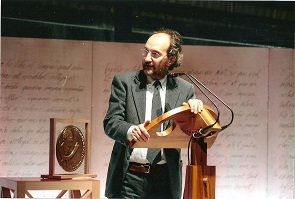
Marco Armiero : OCC! Principal Investigator
Director of the KTH Environmental humanities laboratory and associate professor of environmental history at the same institution. Among his publications: Nature and History in Modern Italy (2010), A Rugged nation. Mountains and the making of modern Italy (2011), Environmental History of Modern Migrations (with R. Tucker, 2017). He has published several articles on the struggles over toxic contamination in Italy.

Sverker Sörlin: is a professor in the Division of History of Science, Technology and Environment at the KTH Royal Institute of Technology, Stockholm, a co-founder of the KTH Environmental Humanities Laboratory. He also serves as a policy analyst and advisor. Current research interests include the science politics of climate change and the formation of environmental expertise. He is the co-editor, with Libby Robin and Paul Warde, of The Future of Nature: Documents of Global Change (Yale University Press, 2013), and, with Dolly Jörgensen, of Northscapes: History, Technology, and the Making of Northern Environments (University of British Columbia Press, 2013).
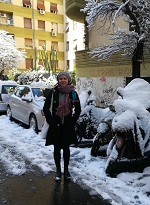
Roberta Biasillo is an environmental historian and is currently working at the Environmental Humanities Laboratory, Royal Institute of Technology in Stockholm (Sweden). She is a researcher at the Italian National Institute of Social Security (INPS) and affiliated with the University of Roma Tre (Italy). She is conducting a research on fascist colonial ecologies, particularly in North Africa, besides OCC!.
In 2017-2018 she has been a fellow at the Rachel Carson Center for Environment and Society in Munich (Germany). In 2016, she was a visiting scholar at the KTH Environmental Humanities Laboratory with a project on a nineteenth-century Italian flood and the analysis of related intervention policy and practice.
She holds a PhD in early modern and modern European history from the University of Bari, Italy. Her doctoral dissertation explores the interaction between forests and modernization in Italy in the nineteenth century. Her research areas also cover political ecology and environmental humanities, and research interests include property regimes, territorial and forest issues, and natural disasters.
Roberta Biasillo is a member of the European Society for Environmental History and serves as representative of young scholars in the fields of environmental history and humanities (ESEH NEXT Generation Action Team). She is a member of the editorial board of the Italian journal Historia Magistra. Rivista di Storia Critica.
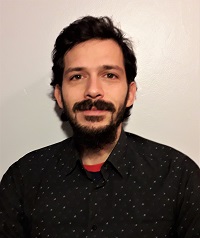
Salvatore Paolo De Rosa is a postdoctoral researcher at the Environmental Humanities Lab of KTH. He holds a PhD in Human Geography from Lund University, Sweden, and is a Fellow of the ENTITLE Collective, a research and activist group that grew out of the ENTITLE Network for Political Ecology. His research areas are political ecology, geography and environmental anthropology while his work focuses on environmental conflicts, socioecological metabolisms and grassroots eco-politics. Currently, he is researching the interactions between municipal administrators and grassroots movements around urban adaptation to climate breakdown in Malmö. He is among the founders and editors of the ENTITLE Blog and collaborates with the Italian independent magazine Napoli Monitor . His work has appeared on scientific journals, popular magazines, research blogs, collective books and NGOs websites.

Ethemcan Turhan: OCC! research coordinator
Ethemcan Turhan is a researcher at KTH Environmental Humanities Lab. Previously, he was a Mercator-IPC postdoctoral fellow on climate change in Istanbul Policy Center, Sabanci University. He received his Ph.D. in environmental studies in 2014 from the Institute of Environmental Science and Technology (ICTA), Universitat Autònoma de Barcelona (Spain). His research interests are international climate change regime (UNFCCC), Turkey's national climate change policy, climate change adaptation, ecological conflicts, environmental movements, energy democracy and migration in the context of climate change. His scholarly work appeared in academic outlets such as Sustainability Science, WIREs Climate Change, Global Environmental Change, Ecological Economics, Capitalism Nature Socialism, New Perspectives on Turkey and Journal of Political Ecology.
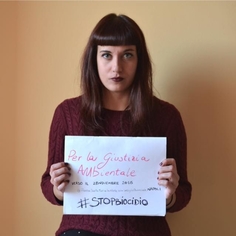
Ilenia Iengo: OCC! research assistant until June 2018
Early career researcher in Political Ecology and Environmental Humanities. Affiliated at KTH Environmental humanities laboratory she works for the projects: Toxic Bios: a guerrilla narrative project and Occupy Climate Change! Her research focuses on the matters of politicization of ill bodies, storytelling environmental justice, grassroots social movements, feminist political ecology, narratives of contamination. She is co-author, with Marco Armiero, of The politicization of ill bodies in Campania, Italy. (2017) Journal of Political Ecology 24: 44-58.
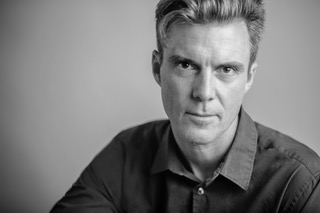
Ashley Dawson is the Barron Visiting Professor in the Environment and the Humanities at the Princeton Environmental Institute, on leave from his permanent position as Professor of English at the Graduate Center/CUNY and the College of Staten Island. He is the author of two recent books on topics relating to the environmental humanities, Extreme Cities: The Peril and Promise of Urban Life in the Age of Climate Change (Verso, 2017), and Extinction: A Radical History (O/R, 2016), as well as six previous books on global social justice movements and anti-imperialism.
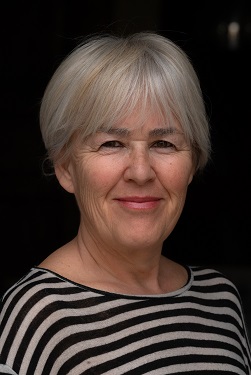
Maria Federica Palestino is associate professor of Urban Planning at the “Federico II” University of Naples, Italy. Her primary research interest is the design of inclusive action-research processes aimed at the social construction of urban plans, programs and policies. Her specific focus is on how to enhance local identities and public images through community participation and involvement. In her latest research project she is exploring the empowerment of fragile communities and places to recover from socio-ecological decline.
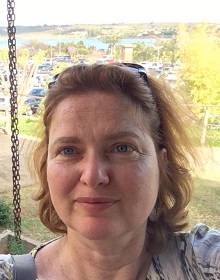
Lise Sedrez (Ph.D. in Latin American History) is an environmental historian at Universidade Federal do Rio de Janeiro. She has worked and published in the USA and Brazil, and is the co-editor of the series Latin American Landscapes. Professor Sedrez's research interests include urban environmental history and history of disasters. She is co-editor with S. Ravi Rajan of The Great Convergence: Environmental histories of BRICS (2018).
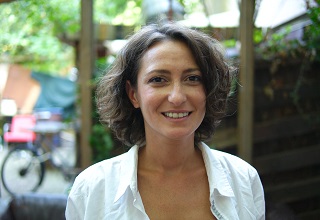
Ayşem Mert is Associate Senior Lecturer at the Department of Political Science, Stockholm University, Adjunct Faculty at the VU University Amsterdam, and a research fellow at the Earth System Governance Research Programme. Her research focuses on discourses of democracy and environment at transnational and global levels, political storytelling, and public-private cooperation/partnerships, using mixed and/or interpretive methods (particularly post-structuralist discourse theory and ecocriticism). She is the author of Environmental Governance through Partnerships: A discourse theoretical study and co-editor of Public–Private Partnerships for Sustainable Development: Emergence, Influence and Legitimacy as well asarticles in Environmental Values, Journal of Environmental Policy and Planning, and Global Policy among others.
- Advisory Board:
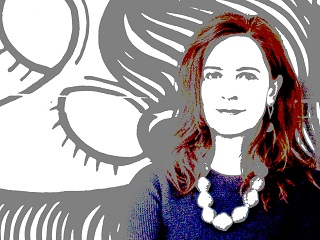
Maria Kaika holds a PhD from the University of Oxford and is Chair in Urban, Regional and Environmental Planning, at the University of Amsterdam. She has taught at the Universities of Oxford, Paris Est (LATTS), KULeuven, University of London, TU Vienna and the University of Manchester. She works on urban political ecology, cities and crisis, land financialization, and urban radical imaginaries. She is author of: City of Flows: Modernity, Nature and the City (2005; Routledge, New York) and co-editor (with N Heynen and E Swyngedouw) of In the Nature of Cities: urban political ecology and the metabolism of urban environments (2006; Routledge, London).
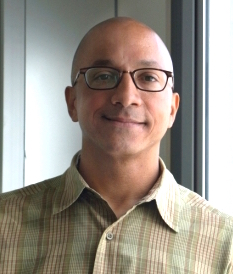
David N. Pellow is the Dehlsen Chair and Professor of Environmental Studies and Director of the Global Environmental Justice Project at the University of California, Santa Barbara. His teaching and research focus on environmental and ecological justice in the U.S. and globally. He has served on the Boards of Directors for the Center for Urban Transformation, Greenpeace USA, and International Rivers.
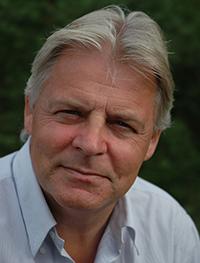
Thomas Elmqvist is a professor in Natural Resource Management at Stockholm Resilience Centre, Stockholm University. His research is focused on urbanization, ecosystem services, land use change, natural disturbances and components of resilience including the role of social institutions. He coordinated an urban research project in metropolitan Stockholm as part of the Millennium Ecosystem Assessment, is the study leader of the UN project “Cities and Biodiversity Outlook”. He is currently leading the interdisciplinary project “Urban Planet” as part of Future Earth. He is Visiting Professor at Integrated Research System for Sustainability Science at the University of Tokyo, Japan; a Fellow at Stellenbosch Institute of Advanced Studies (STIAS), South Africa and Adjunct Professor, Department of Natural Resources, Cornell University, USA.
